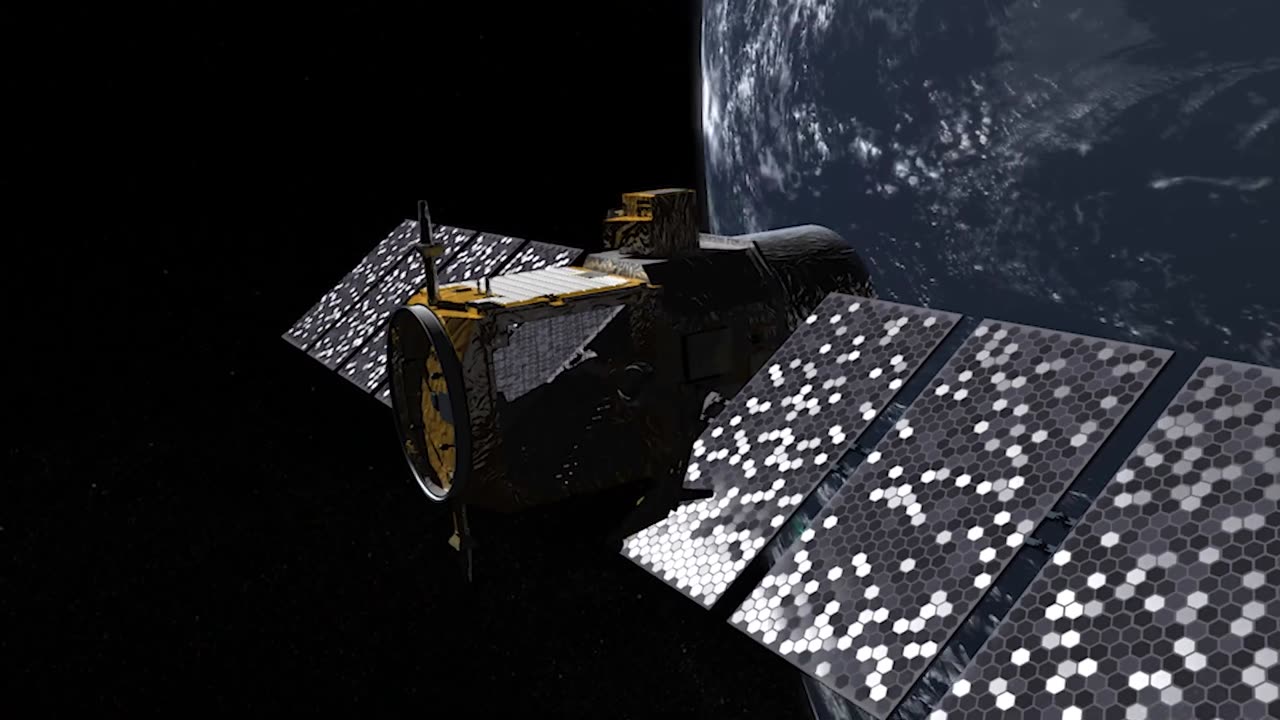Premium Only Content

How NASA Sees the Life Cycle of Volcanic Island Hunga Tonga-Hunga Ha’apai
How NASA Sees the Life Cycle of Volcanic Island Hunga Tonga-Hunga Ha’apai
As of my last knowledge update in September 2021, I can provide you with information about how NASA observed the life cycle of the volcanic island Hunga Tonga-Hunga Ha'apai up to that point.
Hunga Tonga-Hunga Ha'apai is a volcanic island located in the South Pacific Ocean, near Tonga. It emerged as a result of a volcanic eruption that began in December 2014. NASA's interest in this island lies in its unique opportunity to study the entire life cycle of a volcanic island, from its birth through erosion and potential disappearance, which can provide insights into similar processes on other planets, like Mars.
Here's how NASA sees the life cycle of Hunga Tonga-Hunga Ha'apai:
Volcanic Eruption and Formation: The island was formed through a series of volcanic eruptions that led to the accumulation of lava, ash, and other volcanic materials. This process is similar to how many volcanic islands in the Pacific Ocean have formed over millions of years.
Initial Stability: After its formation, the island was relatively stable, and scientists closely monitored its evolution using satellite imagery and other remote sensing tools.
Erosion and Changes: Over time, the forces of erosion began to reshape the island. Ocean waves, wind, and other natural processes gradually eroded the island's shorelines, causing changes in its shape and size. NASA observed and documented these changes using satellite images and data.
Disappearance: One of the most intriguing aspects of Hunga Tonga-Hunga Ha'apai is its potential for disappearing back into the ocean. Many volcanic islands are eventually eroded and submerged due to ongoing natural processes. NASA was interested in studying this process in real time, as it could provide valuable information about similar processes on other planetary bodies.
Scientific Insights: By studying the entire life cycle of the island, NASA hoped to gain insights into geological processes, erosion, and the potential for landforms to arise and disappear over relatively short time scales. This knowledge could contribute to our understanding of similar processes on Mars or other planets with dynamic surfaces.
Please note that the information provided is based on the status up until September 2021. If there have been any significant developments or new observations regarding Hunga Tonga-Hunga Ha'apai since then, I would not have access to that information.
-
 LIVE
LIVE
The Rubin Report
34 minutes agoFox Host Accidentally Infuriates Press Sec After Showing Her This Democrat's Border Comment
11,143 watching -
 LIVE
LIVE
Dr. Eric Berg
3 days agoThe Dr. Berg Show LIVE July 11, 2025
272 watching -
 LIVE
LIVE
LFA TV
12 hours agoLFA TV ALL DAY STREAM - FRIDAY 7/11/25
4,789 watching -
 DVR
DVR
VINCE
2 hours agoICE Raids A Pot Farm - The Dems Hate It | Episode 83 - 07/11/25
65.1K38 -
 LIVE
LIVE
Caleb Hammer
1 hour agoSpoiled. Toxic. B*tch. | Financial Audit
89 watching -
 UPCOMING
UPCOMING
The Shannon Joy Show
1 hour ago🔥🔥 LIVE from Salt Lake City - PRESS CONFERENCE FOR DR. KIRK MOORE: END THE TRIAL NOW!🔥🔥
3 -
 LIVE
LIVE
The Big Mig™
2 hours ago“Epstein Didn’t Kill Himself, The Deep State’s Perfect Hit Job?”
5,258 watching -
 LIVE
LIVE
Badlands Media
6 hours agoBadlands Daily - July 11, 2025
4,731 watching -
 LIVE
LIVE
Benny Johnson
1 hour agoEpstein Lawyer Drops BOMBSHELL, Reveals Documents ARE Being Covered Up | ‘I’ve Seen The Names’
6,980 watching -
 DVR
DVR
Matt Kohrs
8 hours agoBitcoin Skyrockets, Stocks Tumble & Payday Friday || Live Day Trading
12K3